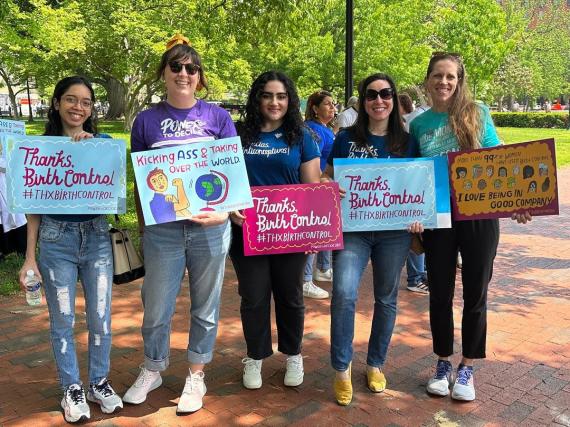Millennial’s Guide: #TalkingIsPower 2019
Do you remember when you and your parents had “The Talk”? We all know it’s as awkward as it is important. But did you know “The Talk” is not limited to just parents and guardians? Or that it's even better if it's not just a one-time deal? Continually talking about sex, love, and relationships throughout kids’ lives is the best approach. And any champion, mentor, or advocate for young people can join and support parents in having these important discussions.
In fact, Millennials (adults age 23–38) are in a unique position to positively influence the young people in their lives. Sometimes it’s less intimidating for adolescents to speak to an older sibling, a trusted coach, or a favorite older cousin than their parent or guardian.
So, even if you don't have children of your own, you can still make a difference in a young person’s life. Don’t know where to start? Here are five tips to spark meaningful conversations about sex, love, and relationships with the young people you care about most.
Go with what you know!
If you are close enough to a young person to talk to them about sex, don’t be afraid to use your own experiences to illustrate your points. We don’t mean giving them an X-rated play-by-play though! Use your knowledge of their interests to smooth the way. If you know they love a TV show, for example, watch an episode that involves sex, love, or relationships together and talk about the action unfolding on screen.
Be Yourself!
This may sound too easy but it’s a great golden rule. Your young person trusts you because of who you are. When you approach them to talk about sex, you don’t have to put on your “adult voice.” You also don’t have to work harder to come across as cool (seriously, it’s embarrassing for everyone when people try to use slang they don’t understand). Just talk to them the way you normally would.
Get vulnerable!
You never have to reveal anything you don't want to but try talking about your teen years to help them to relate. You might talk about a great relationship you had and what made it so awesome. Or you can share some mistakes you made when you were their age—and what you learned from them. Don’t pretend as if you did everything right at their age. Young people sometimes fear adults have forgotten what it feels like to be a teenager. As a Millennial, you are likely closer in age to them than their parents. This is an advantage! Remind your young person that not too long ago you were in their shoes.
Be an active listener.
Young people often avoid bringing up sex, love, or relationships for fear of a lecture from the adults in their lives. And while you may feel expected to give advice, sometimes it’s okay to just let them vent. When the young person in your life comes to talk to you, listen carefully and don’t interrupt. Watch their body language. Hold onto a few key points they bring up for later. When they have finished talking, ask them if they want your thoughts on what they just told you. If they do, great! Start talking! If not, it’s ok to move on.
Make them laugh!
Most adults approach “The Talk” as a super serious event. Often that’s why it’s so awkward, and no one makes eye contact or asks questions. While making sure that young people understand safe and consensual sex is very important, laughter helps to disarm people. Don’t think you have to stay serious just because you’re talking about real life. Love and relationships provide so much material to make us laugh. Even a corny joke can help crack a smile and break the ice during an uncomfortable moment.
The most important thing to remember when you’re having “The Talk” with young people is that they want to hear what you have to say about sex, love, and relationships. They look up to you as a mature young adult who isn’t as “old” or out of touch as their parents. Use your special connection as a trusted Millennial mentor with care. Whether you’re a close cousin, coach, counselor, or an older sibling, you can help ensure the young person in your life has enough support, knowledge, and power to decide if, when, and under what circumstances to get pregnant and have a child.
PS You can help ensure that young people get unbiased, fact-based information about sex, love, relationships and birth control by donating to Power to Decide today.



